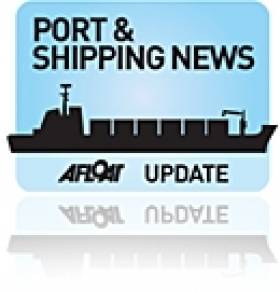Displaying items by tag: Detained livestock carrier
Ireland-Libyan Livestock-Carrier Remains Detained following ‘Post-Repair’ Sea Trails
#Cattleships- Express 1, an Ireland-Libya serving livestock-carrier which was detained in February by the UK's Maritime and Coastguard Agency (MCA) has this week been on 'post-repair trails' in the English Channel, writes Jehan Ashmore.
Having anchored overnight off the Cornish port, the Express 1 returned to Fowey this morning after a two-day inspection at sea of the 7,087 tonnes vessel. This was part of the requirments of the inspection as agreed by MCA surveyors.
Commenting to Afloat.ie, a spokesman for the Maritime and Coastguard Agency said: "The Express 1 remains under detention at Fowey following an inspection yesterday. The operator has made some safety improvements, but there are still some issues".
"Further maintenance work will take place to ensure the ship meets safety standards. We will reinspect it once the maintenance work is complete."
As previously reported, Express 1 while on a passage through the English Channel from Germany in February encountered engine-failure in stormy seas and was taken under tow to Fowey. Arising from the incident, there were calls to the Irish Department of Agriculture to revoke the ships livestock-license.
The 100m Express 1 last year she became the first ship to revive the live cattle-trade from Ireland to Libya, such exports have not taken place since 1996, when Libya banned beef imports from the EU, following the outbreak of (BSE) mad cow disease.
On that inaugural sailing she loaded cattle at Belview Port, the main terminal for the port of Waterford from where animal welfare groups protested.
A sister, Atlantic M, earlier this week had docked at Belview Port and the vessel remains at anchorage today off Dunmore East. She was a former vehicle-carrier the Autotransporter and likewise of Express 1 as the Autoline, they originally operated for Hoegh Ugland Auto-Carriers.
The pair later began a career for United European Car Carriers (UECC) and the sisters continued to make frequent calls to Irish ports.




























































